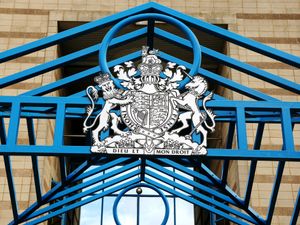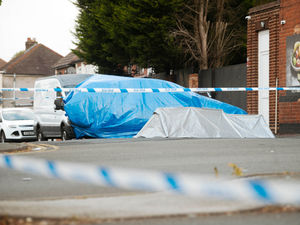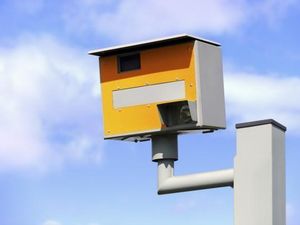'Three Musketeers' Midland terror cell guilty over Lee Rigby-style plot
Members of a Midland terrorist cell who dubbed themselves the "Three Musketeers" are facing years behind bars for plotting a Lee Rigby-style attack after a partly-secret trial plagued by accusations of police corruption.
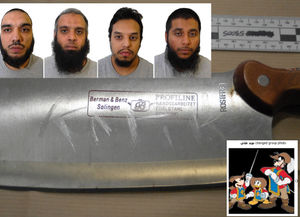
Two members of the gang, from Birmingham and Staffordshire, sought out infamous Islamic State supporter Anjem Choudary before they prepared to strike police and military targets on British soil, it can now be reported.
They were arrested in August last year after MI5 went to bug the car of Naweed Ali, only to uncover a pipe bomb and meat cleaver hidden in a JD Sports bag.
Convicted terrorists Ali, 29, Khobaib Hussain, 25, and Mohibur Rahman, 33, denied preparing an attack and claimed the incriminating evidence was planted by an undercover officer known as Vincent, who posed as the boss of a fake firm called Hero Couriers.
The officer, who gave evidence anonymously, linked Hussain with the JD Sports bag, saying he carried a similar one on earlier visits to the fake firm's depot.
Vincent was cross-examined over 12 days and repeatedly rejected the allegations against him.
The court also heard that he described the claims in a private message as "the usual b*****".
Jurors agreed with him and, after deliberating for 22 hours, convicted Ali, Hussain and Rahman of preparing terrorist acts.

The fourth defendant, Tahir Aziz, 38, was found guilty of the same offence after the jury deliberated for another 20 minutes.
As they were led from the dock, one of the convicted men shouted out: "I hope you're happy with your lies. Lying scumbags."
Mr Justice Globe remanded them in custody until sentencing on Thursday morning.
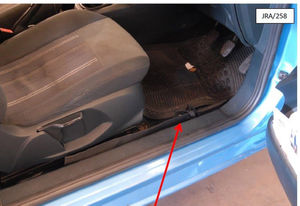
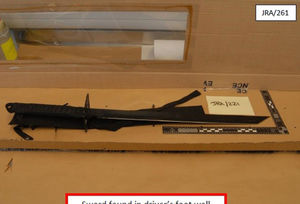
Following the guilty verdicts, Detective Chief Superintendent Matt Ward, head of West Midlands Counter Terrorism Unit, said: "Today's case was about four very dangerous extremists who were plotting to carry out a terror attack in the UK.
"Today the communities of the Midlands, Stoke-on-Trent and Birmingham should feel relieved that they are much safer with these four dangerous individuals now going to spend a long time behind bars."
He described the accusations against his team as "groundless", saying: "They went against the integrity of the undercover operatives, they went against the integrity of the wider investigation.
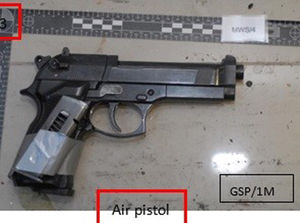
"I'm really proud of our officers; I'm particularly proud of our undercover operatives who were in an incredibly dangerous situation."
The Old Bailey trial had heard that Ali, Hussain and Rahman called themselves the Three Musketeers in an encrypted chat on the Telegram messaging app.
The gang was led by former law degree student turned trainee gas fitter Hussain, from Birmingham, and included his friend and next-door neighbour Ali and committed jihadist Rahman, who they met behind bars.
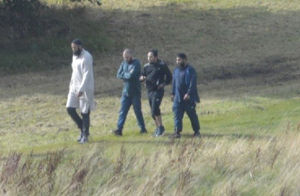
Ali and Hussain were jailed for joining a terrorist training camp in Pakistan while Rahman was in prison for possessing an al Qaida propaganda magazine which contained bomb-making instructions.
Rahman, of High Lane, Stoke, had connections with other extremists, including Choudary, who he is believed to have visited with Aziz last May while the radical preacher was on bail awaiting trial for supporting IS.
Primark salesman Aziz was keen not to be "left behind" but was only brought into the Three Musketeers plot days before the arrests, the prosecution alleged.
The gang had tried to evade secret services and police and even attempted to double-deal with an MI5 contact of Rahman's to extract information.
But the authorities were one step ahead of them with an elaborate undercover operation at Hero Couriers, where Hussain and Ali were offered driving shifts.
The defendants were also covertly photographed meeting on a boating lake and in a park days before their arrests, the court heard.
On August 24, Hussain appeared restless and complained to Rahman on the Three Musketeers group: "We gota do something akhi (brother) just nothings really happening."
Two days later, Ali arrived for his first shift at Hero Couriers and left his Seat Leon at the Birmingham depot before MI5 moved in to conduct a search and "technical" operation.
Instead, they found the JD Sports bag in the footwell, containing a partially-constructed pipe bomb and meat cleaver with the word "kafir" - meaning non-believer - scratched on it in readiness for the imminent attack.
An imitation gun, cartridges, a 9mm bullet, latex gloves and industrial tape were also recovered.
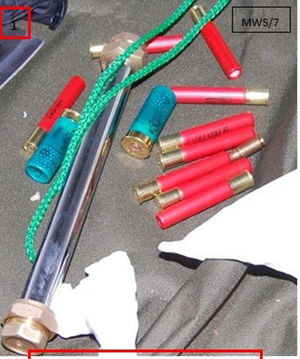
Police immediately arrested all four men and seized a large sword which had been stashed in Aziz's car.
Jurors were told Hussain had previously handled the same type of pipes used for the bomb on his gas fitter's course and his DNA was on the roll of tape.
Ali, who suffered from a stutter at school and had previously claimed to have been wooed by MI5, declined to give evidence.
Ringleader Hussain, who lived next door to him in Sparkhill, Birmingham, told jurors he only believed in "defensive" jihad.
But prosecutor Gareth Patterson QC said he was in reality a "highly-radicalised, intelligent and angry man who believed he had a duty to take action" but got careless and left his DNA behind.
Aziz, of Wulstan Road, Stoke, worked as a delivery driver for Funky Chicken as well as at Primark, where he was arrested wearing his work uniform.
He claimed he was just doing research when asked to explain what he was doing with pages from an al Qaida pipe bomb-making article and said the sword in his car was for self defence.
The four-month trial was held partly in secret in the interests of national security as two anonymous witnesses gave evidence behind closed doors.
The trial was disrupted over fears that jurors might be unfairly influenced as the country was rocked by four terror attacks in Westminster, Manchester, London Bridge, and Finsbury Park.

